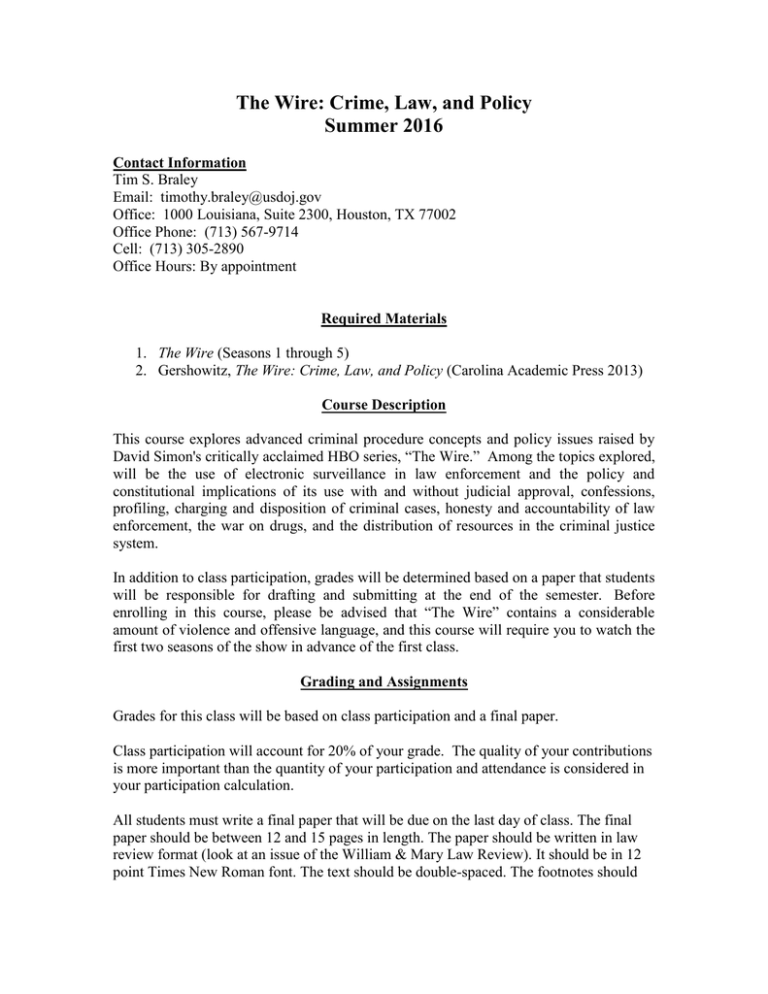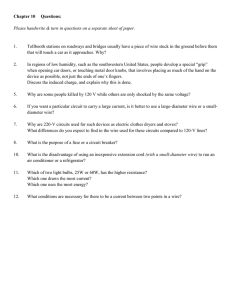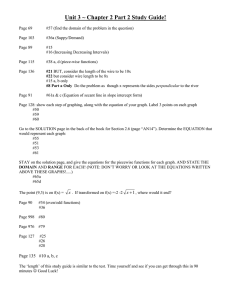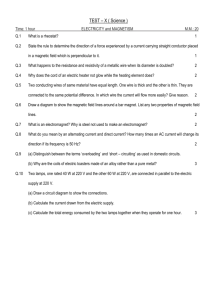The Wire: Crime, Law, and Policy Summer 2016
advertisement

The Wire: Crime, Law, and Policy Summer 2016 Contact Information Tim S. Braley Email: timothy.braley@usdoj.gov Office: 1000 Louisiana, Suite 2300, Houston, TX 77002 Office Phone: (713) 567-9714 Cell: (713) 305-2890 Office Hours: By appointment Required Materials 1. The Wire (Seasons 1 through 5) 2. Gershowitz, The Wire: Crime, Law, and Policy (Carolina Academic Press 2013) Course Description This course explores advanced criminal procedure concepts and policy issues raised by David Simon's critically acclaimed HBO series, “The Wire.” Among the topics explored, will be the use of electronic surveillance in law enforcement and the policy and constitutional implications of its use with and without judicial approval, confessions, profiling, charging and disposition of criminal cases, honesty and accountability of law enforcement, the war on drugs, and the distribution of resources in the criminal justice system. In addition to class participation, grades will be determined based on a paper that students will be responsible for drafting and submitting at the end of the semester. Before enrolling in this course, please be advised that “The Wire” contains a considerable amount of violence and offensive language, and this course will require you to watch the first two seasons of the show in advance of the first class. Grading and Assignments Grades for this class will be based on class participation and a final paper. Class participation will account for 20% of your grade. The quality of your contributions is more important than the quantity of your participation and attendance is considered in your participation calculation. All students must write a final paper that will be due on the last day of class. The final paper should be between 12 and 15 pages in length. The paper should be written in law review format (look at an issue of the William & Mary Law Review). It should be in 12 point Times New Roman font. The text should be double-spaced. The footnotes should be single-spaced. The page numbers should be located at the bottom/middle of each page. I will disseminate topic lists for your final paper from which you may choose. Each will be a topic portrayed by the The Wire. Your paper should use the facts as provided in the series to explain the issue/problem and analyze what rules, procedures, policies or legal developments that could realistically address the problem. Just some practical tips…you should not suggest a simple slogan or easy fix. For instance, your paper should not argue for “just legalizing drugs” or “spending more money on schools” or “holding police officers accountable,” nor should you regurgitate a solution that has already been argued elsewhere. Be careful not to offer a proposal that is too broad and far ranging. For example, proposing a complete restructuring of the prison system in the United States or a complete revamping of the way we help prisoners to reenter society is too broad. Rather, you should (1) address a discrete issue, (2) document the problem with examples from The Wire as well as other materials you have researched; and (3) suggest a plausible way to improve the situation. It is not necessary that you completely solve the problem, particularly since The Wire should have taught you that some systemic institutional problems are beyond complete repair. You should instead consider a way to minimize the problem, while weighing the trade-offs and costs that come with your proposed course of action. It is important that your solution be specific and detailed. You should explore the nuts and bolts of how your proposal would be adopted and how it would logistically work. If you propose a change in how the law should apply or govern a particular issue, you should consider whether your change is constitutional as well as what statutes, common law doctrines, regulations, or other rules would specifically have to be changed. To the extent your proposal will involve the expenditure of more money, you need to explain where that money will come from and how you will convince politicians and the public to support it. Simply saying, “spending the money on my proposal now will save us money in the long run by incarcerating fewer people” is not, by itself, particularly persuasive. The best papers will be the ones that target a clear and particular problem, offer a solution that is reasonable in approach and scope, and are specific about how the solution will be implemented. The final paper will be worth 80% of the grade for the course. 2 Topics and Assignments Assignments will be made by e-mail after each class. Before the first class, please view the first 2 seasons of “The Wire” and be prepared to discuss. In addition, before the first class, read Chapters 1 and 2 of the text. 3






